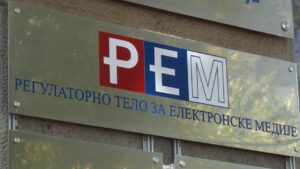Although Autonomija, in transmitting the statement in question, acted in accordance with the Code of Journalists of Serbia, and the title, at the beginning, middle and end of the text clearly and unequivocally states that it is a statement of the Democratic Party, and that editorially processed parts of the text did not change the facts from the statement or the context in which they were used, nor their meaning, the Court of Appeal in Belgrade considers that the Law on Public Information and Media was violated precisely because of the editorially processed parts of the statement.
Although in accordance with the Code of Journalists of Serbia and the rules of the journalistic profession, the editorial office has the undisputed right to process editorial statements, the Court of Appeal in Belgrade considers in fact, it means that the editorial board of the Autonomija media stated its position when it follows that the media agrees with the content of that statement.
The Court of Appeal goes so far as to state in the verdict which words the journalists should have used in order to properly distance themselves from the statement in question.
Such a verdict is a serious precedent because it encroaches on the essential role of the media in a democratic society to transmit information that, among other things, comes from political actors. The court takes on the role of editor-in-chief and teaches journalists how and which words should be found in the texts they publish.
It is especially indicative that such a verdict comes during the election campaign in which the media have a significant role to convey the messages of political actors.
The Coalition for Media Freedom consists of the Media Association, the Online Media Association (AOM), the Independent Journalists ‘Association of Vojvodina (NDNV), the Independent Journalists’ Association of Serbia (NUNS), the Local Press and Local Media Association and the Slavko Curuvija Foundation.




